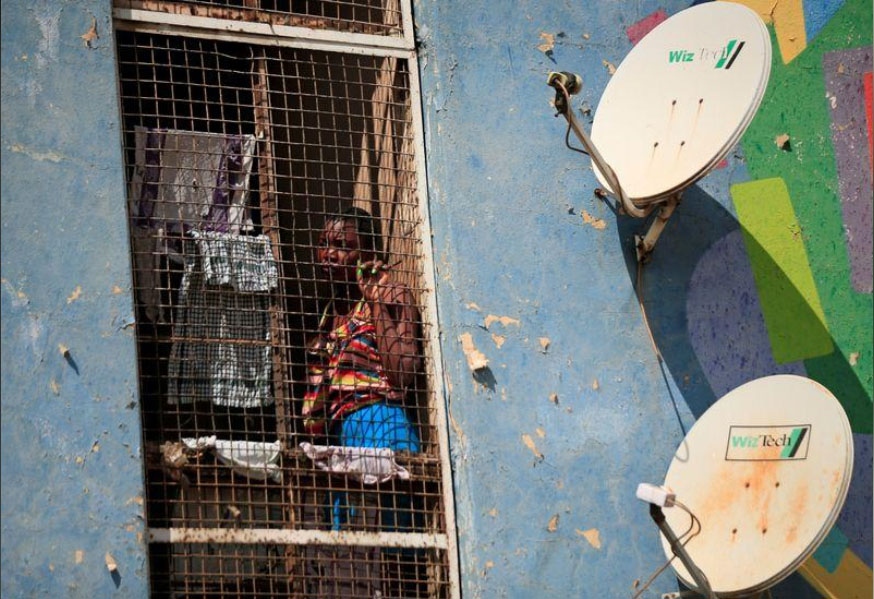HARARE – Zimbabwe’s novel coronavirus cases reached nine on Thursday, after authorities said a man who recently returned from the United Kingdom had tested positive.
The news came as the global coronavirus cases surpassed one million, with more than 52,000 deaths as the pandemic further exploded in the United States and the death toll climbed in Spain and Italy.
Zimbabwe, which recently announced a 21-day lockdown to curb the spread of the virus, has been accused of understating figures, which authorities deny, but the country’s test rate still lags behind: only 316 individuals had been tested by Thursday.
In a daily update, the ministry of health said a 50-year-old Harare man who returned from the United Kingdom on March 21 was the latest to test positive for coronavirus, and had been put in self isolation.
He exhibited “mild symptoms” and a team went to collect samples for testing on April 1, the ministry said.
As the coronavirus cases continued their gallop around the world, Italy had the most deaths – more than 13,900 – followed by Spain. The United States had the most confirmed cases of any country, more than 240,000, data showed.
Since the virus was first recorded in China late last year, the pandemic has spread around the world, prompting governments to close businesses, ground airlines and order hundreds of millions of people to stay at home to try to slow the contagion.
Morgues and hospitals in New York City, the epicentre of the U.S. outbreak, bent under the strain on Thursday, struggling to treat or bury casualties, as New York state’s Governor Andrew Cuomo offered a grim prediction the rest of the country would soon face the same misery.
Staff at one medical centre in Brooklyn were seen disposing of their gowns and caps and other protective wear in a sidewalk trash can after wheeling bodies out of the hospital and loading them into a refrigerated truck.
In hard-hit Spain, the death toll rose to more than 10,000 on Thursday after a record 950 people died overnight, but health officials were encouraged by a slowdown in daily increases in infections and deaths.
Spain has shed jobs at a record pace since it went into lockdown to fight the coronavirus, social security data showed on Thursday, with some 900,000 workers having lost their jobs since mid-March.
Appearing for the first time since recovering from the virus himself, Britain’s health minister Matt Hancock promised a tenfold increase in the number of daily tests for the coronavirus by the end of the month after the government faced criticism for failing to roll out mass checks for health workers and the public.
Britain initially took a restrained approach to the outbreak but Prime Minister Boris Johnson, who tested positive for the virus himself, changed tack and imposed stringent social distancing measures after modelling showed a quarter of a million people in the country could die.
In Italy, which hit a daily peak of 6,557 new cases on March 21 and accounts for around 28 percent of all global fatalities, the death toll climbed to 13,915 on Thursday. But it was the fourth consecutive day in which the number of new cases stayed within a range of 4,050-4,782, seeming to confirm government hopes that the epidemic had hit a plateau.
Italy was the first Western country to introduce sweeping bans on movement and economic activity, having first confirmed the presence of coronavirus almost six weeks ago.
In Russia, President Vladimir Putin prolonged until April 30 a paid non-working period across the country, just a week after the Kremlin said there was no epidemic.
There has been particular concern about the spread of the virus in countries that are already struggling with insecurity and weakened health systems.
In Iraq, three doctors involved in the testing, a health ministry official and a senior political official said there were thousands of cases of Covid-19, many times more than it has publicly reported. The health ministry denied it.
In Latin America, Ecuador said it was building a “special camp” for coronavirus victims in the country’s largest city, Guayaquil, where more than 80 people have died.
Brazilian President Jair Bolsonaro further played down the pandemic, telling church ministers it is “not all it’s being made out to be” and denying that any hospital in the country had reached full capacity. But with his closest aides refusing to support his plan to relax coronavirus rules to keep the economy going, according to sources with knowledge of the dispute, Bolsonaro was looking increasingly isolated.
In South Africa, the country with the most cases in Africa, authorities were rolling out a mass testing programme during the ongoing 21-day national lockdown due to run until at least April 17.
South Africa has declared 1,462 cases and five deaths.
Health Minister Zweli Mkhize said they were planning added testing methods, including mobile testing for rapid results.
Mkhize warned that no one in the country had a clear picture of how many people had been infected. Testing criteria are restrictive and detect only those with reactive symptoms.
“Those people who might have mild symptoms in poorer areas might not seek help immediately. Our testing criteria are reactive and restrictive. This means we don’t have a true picture. Although we are talking about 45,000 tests, this is too low, given the size of the population,” said Mkhize.
Mkhize fears the coming winter season could see an explosion in cases, warning: “The small growth in numbers might be the calm before a devastating storm. Next month the flu season will start and our hospitals and clinics will be flooded; this will create a fertile ground for [the] coronavirus to spread or to be masked in its presentation. We need to be aware that there might not be many further warnings before the pounding descends.”
The first 100,000 cases worldwide of Covid-19, the respiratory disease caused by the coronavirus, were reported in around 55 days and the first 500,000 in 76 days, according to a Reuters tally based on official records. – Staff Reporter/Reuters















